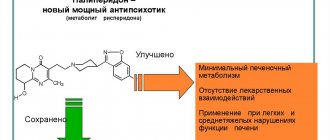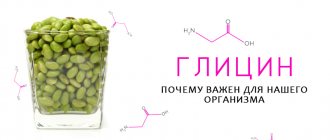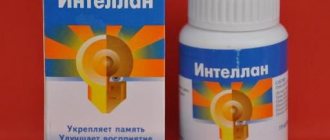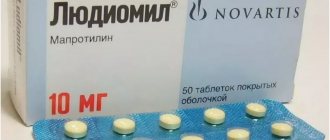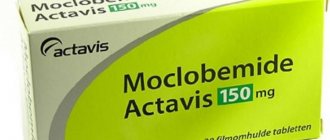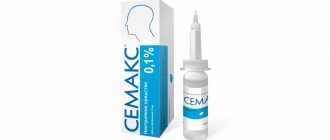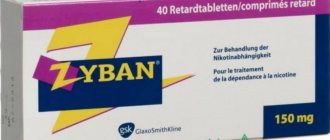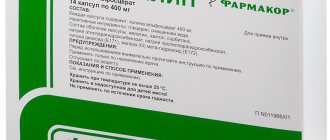Anonymously
Around the clock
Attention! The material contains information about substances, the use of which can cause serious harm to your health!
Some drugs are not created by drug dealers, but are used in medicine to treat various diseases. One of these is phenobarbital. Drugs based on them can be extremely addictive even with the correct dosage.
- Phenobarbital
- What is phenobarbital
- Photo of the drug: what it looks like
- Duration of action of phenobarbital
- Harm of phenobarbital
- Effect of Phenobarbital: narcotic effect
- Forms of release of the drug
- Phenobarbital tablets
- Solution
- Signs of phenobarbital use
- Physical symptoms
- Changes in behavior
- How long does phenobarbital leave the body?
- How long does it stay in the blood?
- How long does it stay in urine?
- Consequences of taking Phenobarbital: effects on the body
- Phenobarbital poisoning
- Phenobarbital during pregnancy
- Lethal dose of phenobarbital
- Phenobarbital dependence
- Drug overdose
- Withdrawal from Phenobarbital
- Treatment of Phenobarbital Addiction
- Get rid of addiction at home
- Treatment for Phenobarbital in the clinic
We will select an individual treatment plan
Free consultation 8-800-200-27-23
Content:
- Effect of Phenobarbital on the body
- Effect on humans of Phenobarbital used in high doses
- When narcotic medicine is strictly prohibited
- How addiction develops
- How to understand that a person is “sitting” on Phenobarbital
- What does phenobarbital addiction lead to?
- How to deal with addiction
Phenobarbital drug addicts use it for a reason.
It quickly causes physical dependence if used uncontrollably. The drug belongs to the pharmacotherapeutic group “Anticonvulsants” and is a representative of barbiturates. Prescribed to patients with various forms of epilepsy, with the exception of absence seizures.
Also, sometimes narcologists prescribe it to alcoholics suffering from painful withdrawal symptoms. Shows pronounced hypnotic and sedative properties.
Interaction
Combination with drugs that depress the nervous system, as well as ethanol-containing drugs and ethanol can lead to increased CNS depression. Caffeine reduces the hypnotic effects of phenobarbital .
Interaction with MA O and Methylphenidate causes an increase in plasma levels of phenobarbital , so that the toxic effect and inhibitory effect on the nervous system are enhanced.
The intensity and duration of action of the following drugs may be reduced when combined with Phenobarbital: GCS , chloramphenicol , Dacarbazine , Metronidazole , Carbamazepine and anticonvulsants from the succinimide , anticoagulants Indandione and Coumarin derivatives ), Doxycycline , Chlorpromazine , vitamin D , Corticotropin , Cyclosporine , digitalis glycosides , Quinidine , estrogen-containing oral contraceptives , tricyclic antidepressants , Fenoprofen , Phenylbutazone , xanthines .
Concomitant use with acetazolamide can provoke osteomalacia and rickets .
Taking valproic acid leads to an increase in plasma levels of phenobarbital , which can cause pronounced sedation and lethargy . The level of valproic acid in plasma decreases slightly.
Combination with Verapamil , Felodipine , Nimodipine also leads to a decrease in their plasma levels.
Interactions with Halothane , Ftorotan , Enflurane and Methoxyflurane may cause increased metabolism anesthetic drugs , which increases the likelihood of toxic effects on the liver (and also on the kidneys in the case of Methoxyflurane ).
Taking Griseofulvin leads to a decrease in the degree of its absorption from the intestine.
Combination with Maprotiline in high dosages reduces the seizure threshold and the anticonvulsant effect of barbiturates .
The effectiveness of Paracetamol may be reduced when taken with Phenobarbital. Possible development of hepatotoxicity .
A daily dose of Pyridoxine of 200 mg reduces the level of phenobarbital in plasma, and simultaneous use with Primidone and Felbamate , on the contrary, increases it.
If there is a lack of folic acid in the body, taking medications with this acid leads to a decrease in the effectiveness of Phenobarbital.
Combination with other sedatives can lead to severe respiratory depression.
Effect of Phenobarbital on the body
The drug has an effect on the cerebral cortex and inhibits the functioning of the thalamus. Due to this, a pronounced hypnotic and sedative effect occurs. Its anticonvulsant activity is achieved by reducing neuronal excitability provoked by psychotropics or an existing mental disorder.
The sleep that occurs after using the drug Phenobarbital is very different from normal physiological sleep. Thus, the duration of the REM sleep phase is reduced, as are the third and fourth stages of slow sleep. The structure of human night rest is undergoing dramatic changes. The hypnotic effect appears within an hour after taking the medicine and lasts up to 8-12 hours. But after two weeks of regular use of Phenobarbital, its hypnotic effect becomes weaker.
If you combine the medication with antispasmodics, you will be able to quickly achieve positive dynamics in neurovegetative pathologies. The drug can reduce the activity of metabolic reactions and inhibit the main centers of thermoregulation. Because of this, the drug addict’s body temperature drops significantly.
What are the dangers of using Phenobarbital?
Due to the rapid addiction to Phenobarbital, which usually occurs after 1 or 2 weeks of taking the drug, doctors try to replace this medicine with something else, but with a similar effect. Those who become dependent on Phenobarbital become drug addicts. At the end of the 20th century, pharmacists decided to replace Phenobarbital with other drugs. They found means that, although difficult, help to free oneself from phenobarbital addiction. One of these drugs is Glycine, which has a similar effect, but more mildly. "Glycine" does not cause euphoria in case of accidental or intentional overdose.
Effect on humans of Phenobarbital used in high doses
An overdose of the drug causes serious harm to health. There are disruptions in the transmission of nerve impulses, and consciousness changes. The most dangerous complication is destruction and damage to the main nerve canals. With this pathology, symptoms such as:
- psychomotor excitability;
- inability to remain calm or sit still for even a short time;
- sense of anxiety.
If a person takes the drug in high doses for a long time, his nerve channels completely atrophy. But nerve impulses continue to look for a way out, so they pass along alternative courses of movement. As a result, the addict:
- involuntary contractions of the facial muscles occur (facial expressions look very strange);
- the tongue falls out;
- there is copious secretion of saliva;
- tremor of the fingers is observed.
The effect of Phenobarbital on the human body is very specific. In many drug addicts, the respiratory center is depressed. They begin to inhale less air. There is a feeling of lack of oxygen. Choking may develop.
Drug poisoning can be acute or chronic. A specific toxic dose for humans has not been established. It depends on age, gender, body weight, and health status. If you drink one gram of medication at a time, symptoms of acute intoxication will most likely appear.
The lethal dose of Phenobarbital is from two to ten grams. An addict develops symptoms reminiscent of alcohol poisoning:
- vomit;
- nausea;
- dizziness;
- stomach ache;
- severe headaches;
- problems with orientation in space;
- surges in blood pressure.
Signs of a neurological disorder also make themselves felt. Therefore, if a dose of Phenobarbital exceeding one gram is taken, you should receive qualified medical care as soon as possible.
Phenobarbital overdose
In case of toxic poisoning, symptoms may not appear for several hours. Ingestion of 1 g may cause serious poisoning in adults. In turn, taking 2-10 g leads to death.
Acute overdose is fraught with the appearance of ataxia , severe confusion , agitation, headache , oliguria , hypotension , cyanosis , coma , unusual eye movements, severe weakness and drowsiness , slurred speech, dizziness , Cheyno-Stokes respiration , tachycardia , hypothermia . In addition, nystagmus , constriction of the pupils, weakened or complete absence of reflexes, respiratory depression, weak pulse, and hemorrhages (at pressure points) are possible.
Severe intoxication can lead to pulmonary edema, apnea , death, vascular collapse with decreased peripheral vascular tone, respiratory and cardiac arrest.
If the drug was taken in a life-threatening dosage, suppression of the electrical activity of the brain is likely, which cannot be regarded as clinical death, since the effect is completely reversible if there was no damage associated with hypoxia .
Chronic intoxication with this drug can manifest itself as apathy , constant irritability, insomnia , dizziness , decreased mental abilities and confusion, imbalance, drowsiness , general weakness, confusion of speech. In addition, hallucinations and convulsions may appear, excessive agitation is possible, disruption of the cardiovascular system, gastrointestinal tract and kidney function.
pneumonia , congestive heart failure , arrhythmia , and renal failure may develop .
Acute overdose of Phenobarbital is treated by accelerating the elimination of the active substance and maintaining vital functions.
In order to reduce the absorption of the drug, you can induce vomiting, and then prescribe activated charcoal . In this case, measures must be taken to prevent aspiration of vomit. If vomiting cannot be induced, gastric lavage is performed.
To speed up the removal of the drug from the body, saline laxatives and alkaline solutions are given, and forced diuresis .
Monitoring vital functions and water balance in the body is mandatory.
The following support measures are available:
- maintaining normal blood pressure ;
- ensuring airway patency;
- anti-shock measures (if necessary);
- prescribing antibiotics (if the development of pneumonia );
- use of mechanical ventilation and oxygen;
- use of vasoconstrictor drugs (in case of hypotension );
- prevention of hypostatic pneumonia , aspiration , bedsores and other complications.
It is not recommended to give analeptics ; it is advisable to avoid overloading the body with fluid or sodium.
In case of severe intoxication, shock or anuria peritoneal dialysis or hemodialysis is prescribed . In this case, the content of phenobarbital in the blood should be monitored.
In order to treat chronic intoxication, the dosage of the drug is gradually reduced until complete withdrawal. Therapy is symptomatic. You may need psychotherapy.
When narcotic medicine is strictly prohibited
The official instructions indicate the following contraindications to treatment with Phenobarbital:
- individual intolerance to barbiturates;
- severe anemia;
- chronic alcoholism;
- liver/renal failure;
- severe pathologies of the respiratory system;
- diabetes;
- pregnancy, lactation;
- tendency to develop drug/alcohol addiction (for example, if there is a history of these diseases);
- depression;
- suicidal tendencies;
- acute pain of any localization of unknown origin.
Under no circumstances should you combine the medicine with other depressants or alcohol. Such combinations increase the effects of Phenobarbital and lead to deadly complications.
Forms of release of the drug
Phenobarbital is available in several forms for ease of use. For example, injections work much faster than tablets.
Phenobarbital tablets
The tablets are sold strictly according to your prescription. However, there are always ways to buy them illegally. The medicine requires an individual dosage, which is calculated only by a doctor. It has many contraindications, for example, pathologies of the heart, liver and kidneys, pregnancy and breastfeeding, etc.
Solution
Used for intravenous and intramuscular administration. Maximum concentration in blood plasma is achieved after 1-2 hours.
Find out treatment recommendations without leaving home for free
To select a treatment plan, you just need to leave a request, we will contact you to select the time and specialist you need
Submit your application
How addiction develops
The medication gives a lasting effect of relaxation and tranquility. Therefore, many people, after completing a course of treatment, decide to continue using it. Since the active substance of the drug is eliminated from the body rather slowly, daily therapy often contributes to an overdose. The composition accumulates faster than the kidneys have time to neutralize and remove it.
Over time, the usual dose ceases to provide the desired feeling of euphoria. Then the novice drug addict increases it. This behavior can lead to death from overdose.
Absorption and excretion
The drug substance enters the bloodstream through the mucous membrane of the small intestine after prolonged absorption. The bioavailability rate is eighty percent. The rate of binding to blood proteins can reach forty-five percent. The active component enters various organs and overcomes the barrier that isolates brain tissue from the blood. The substance also penetrates the placental barrier well. Penetration of the chemical compound into breast milk is noted. In the liver tissue, the active component is converted to form metabolites that do not have medicinal properties.
The drug is excreted in the urine in its original form and in the form of metabolites. It is possible for the substance to accumulate in the body if the excretory system is disrupted. In this case, the therapeutic effect is prolonged.
How to understand that a person is “sitting” on Phenobarbital
You can recognize an addict by the following symptoms:
- detached look;
- complete lack of initiative;
- inability to focus on anything;
- lack of interest in what is happening around;
- constant drowsiness;
- excessive timidity;
- inadequacy and aggression towards relatives and friends.
Of course, all these signs are vague and non-specific. Therefore, if relatives do not know what medicine the addict is taking, they most likely will not guess anything. If they are aware of recent treatment with Phenobarbital, then they should think about the fact that the addict is continuing therapy without the knowledge of the doctor.
What does phenobarbital addiction lead to?
Many drug addicts think that since Phenobarbital is a pharmaceutical drug, it cannot cause serious harm to health. This is a deep misconception. Persons with a significant drug history often encounter:
- cardiovascular diseases;
- swelling;
- dermatitis;
- respiratory failure;
- unbearable pain in the back;
- mental disorders;
- very slow wound healing;
- nightmares;
- inhibition of speech and mental reactions.
The patient begins to behave strangely and inappropriately. He is constantly afraid of something. Periodically he has panic attacks. The condition is complicated by visual and auditory hallucinations.
How to deal with addiction
To overcome the disease, you must completely stop taking the drug and any other barbiturates. The most reasonable thing is to contact a narcologist and undergo the treatment he suggests in an inpatient drug clinic.
Considering that the drug often causes suffocation, it is better for the drug addict to be constantly under medical supervision. In addition, sudden withdrawal from the drug sometimes results in coma.
Doctors always reduce the dose of Phenobarbital gradually to avoid negative changes in the patient's physical and mental condition. After about two weeks, withdrawal symptoms begin to subside, and health improves.
To fully recover, you need to devote time to rehabilitation. It lasts much longer than two weeks. You can go through it at a rehabilitation center.
How can you tell if your loved one is abusing phenobarbital?
There are several obvious signs of abuse of any barbiturate
• Erratic behavior and extreme changes in mood • Unexplained restlessness and inability to concentrate • Self-isolation • Fake prescriptions • Lack of coordination • Episodes of depression and memory loss • Redness and inflammation of the skin • Changes in consciousness and short attention span • Aggression, agitation and antisocial behavior • Wide pupils • Slurred speech
Literature:
- Drug complications and ways to eliminate them: handbook. for doctors / I. B. Mikhailov, I. V. Markova. - M.; St. Petersburg : DILYA, 2004. - 329 p.
- Pharmacotherapy in neurology and psychiatry / ed. S. D. Enn and J. T. Coyle; lane from English edited by O. S. Levina; trans.: O. S. Andreev, K. M. Petrov, T. V. Naimushina. — Moscow: Med. information agency, 2006. - 799 p.
- Adverse drug reactions = Adverse drug reactions. General information / [Reichart D.V. et al.] ; edited by D. W. Reichart. - Moscow: Litterra, 2007. - 248 p.
Similar drugs:
- Carsil Dragee
- Ascorutin Oral tablets
- Yogurt Capsule
- Ergoferon () Lozenges
- Magne B6 Oral tablets
- Omez Capsule
- Papaverine Oral tablets
** The Drug Directory is intended for informational purposes only. For more complete information, please refer to the manufacturer's instructions. Do not self-medicate; Before starting to use the drug Phenobarbital, you should consult a doctor. EUROLAB is not responsible for the consequences caused by the use of information posted on the portal. Any information on the site does not replace medical advice and cannot serve as a guarantee of the positive effect of the drug.
Are you interested in the drug Phenobarbital? Do you want to know more detailed information or do you need a doctor's examination? Or do you need an inspection? You can make an appointment with a doctor - the Euro lab is always at your service! The best doctors will examine you, advise you, provide the necessary assistance and make a diagnosis. You can also call a doctor at home . Euro lab clinic is open for you around the clock.
** Attention! The information presented in this medication guide is intended for medical professionals and should not be used as a basis for self-medication. The description of the drug Phenobarbital is provided for informational purposes only and is not intended for prescribing treatment without the participation of a doctor. Patients need to consult a specialist!
If you are interested in any other drugs and medications, their descriptions and instructions for use, information about the composition and form of release, indications for use and side effects, methods of use, prices and reviews of drugs, or you have any other questions and suggestions - write to us, we will definitely try to help you.
